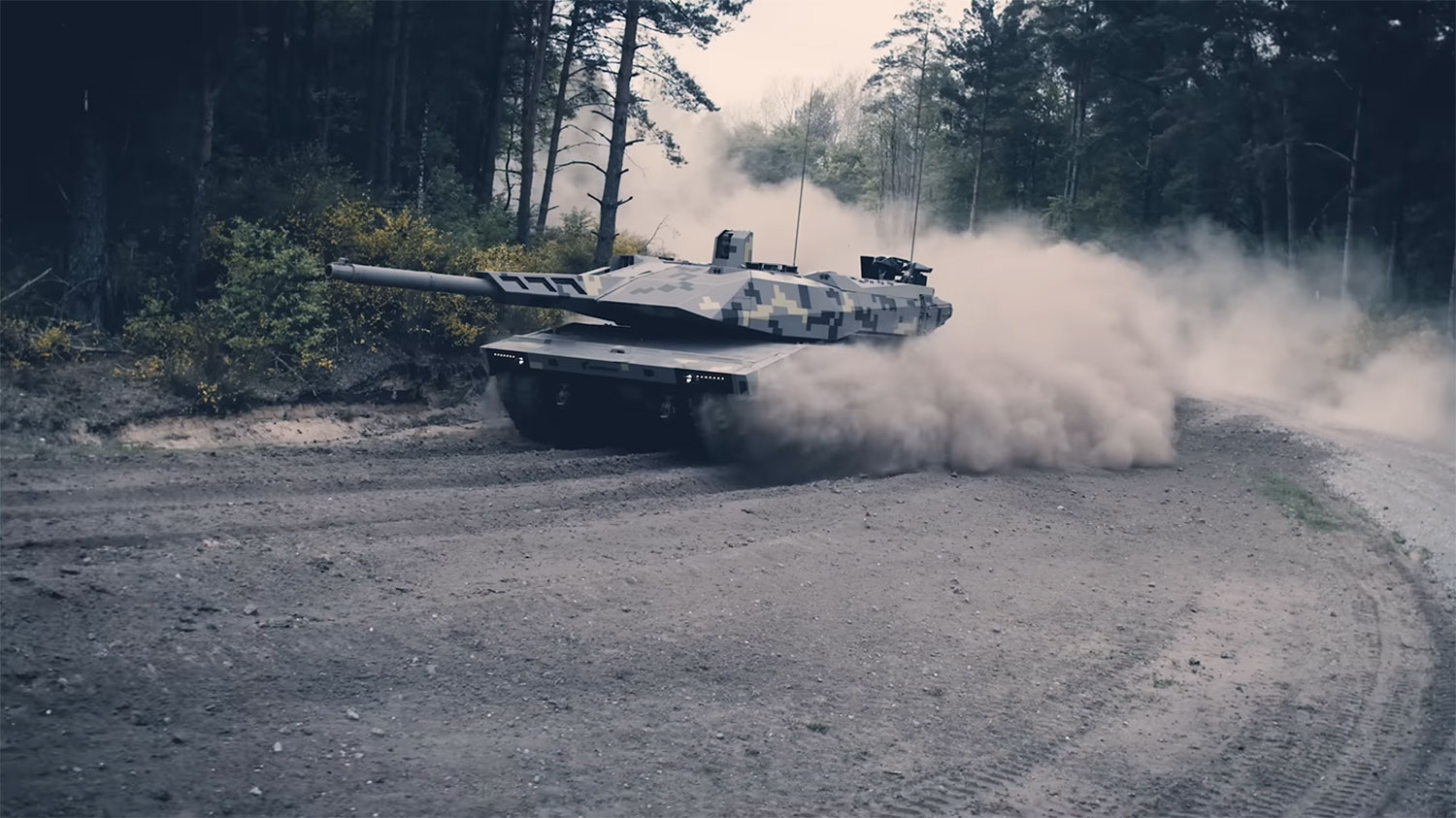
Rheinmetall has revealed its new KF51 Panther at the Eurosatory 2022 defense and security exhibition in Paris. The latest member of Rheinmetall’s family of tracked vehicles, the KF51 Panther is destined to be a game-changer on the battlefields of the future. The main battle tank concept sets new standards in all areas – lethality, protection, reconnaissance, networking, and mobility.
With its 130 mm Rheinmetall Future Gun System, the KF51 Panther offers superior firepower against all current and foreseeable mechanized targets. This smoothbore gun incorporates a fully automatic ammunition handling system that holds 20 ready rounds that are instantly available. Compared to current 120 mm systems, the FGS delivers over 50% greater effectiveness at significantly longer ranges of engagement. The FGS can fire kinetic energy (KE) rounds as well as programmable airburst ammunition and corresponding practice rounds.
Backing up the main weapon is a 12.7 mm coaxial machine gun. Several options for the integration of remotely controlled weapon stations (RCWS) offer flexibility for proximity and drone defense. Integrating a launcher for HERO 120 loitering munition from Rheinmetall’s partner UVision into the turret is equally possible. It carries a 4.5 kg (10 lb) warhead and has an electric motor that allows it to remain airborne for up to 60 minutes. This enhances the KF51’s ability to strike targets beyond the direct line of sight.
Rheinmetall’s Top Attack Protection System (TAPS) wards off threats from above, while the fast-acting ROSY smoke/obscurant systems conceal the KF51 from enemy observation. The 40 mm Rosy smoke protection system can lay down both large-area and dynamic smoke screens to obscure the vehicle from a wide variety of guided weapons.
The KF51 Panther is basically designed for a three-person crew: the commander and gunner in the turret and the driver in the chassis. An additional operator station is available for a weapon and subsystem specialist or for command personnel such as the company commander or battalion commander.
Designed in accordance with NGVA (NATO Generic Vehicle Architecture) standards, the tank’s fully digital architecture enables seamless integration of sensors and effectors both within the platform as well as into a networked “system of systems”. Since the turret and weapons can also be controlled from the operator stations in the chassis, variants of the KF51 Panther with unmanned turrets or completely remote-controlled vehicles are also planned in the future. In addition, the Panther can network with reconnaissance units for enhanced situational awareness and share data directly with other assets.
The commander and gunner are both able to observe and engage targets independently of each other, both day and night, thanks to the panoramic SEOSS optical sensor and EMES main combat aiming device. In addition, the crew has an interface that provides a 360-degree outside view, allows for the crew to take over tasks and roles from other crew members, and allows the Gunner and Commander to independently track and engage separate targets.
With an operational weight of just 59 tons, the KF51 Panther delivers far greater mobility than current systems and has a maximum operating range of around 500 km (311 miles). Without prior preparation, it fits into NATO’s AMovP-4L profile, something no other current main battle tank upgrade can do. Consequently, the KF51’s tactical and strategic mobility set it apart.
Rheinmetall’s Panther KF51 main battle tank combines lethality and mobility
Source: Global Access News

No comments:
Post a Comment